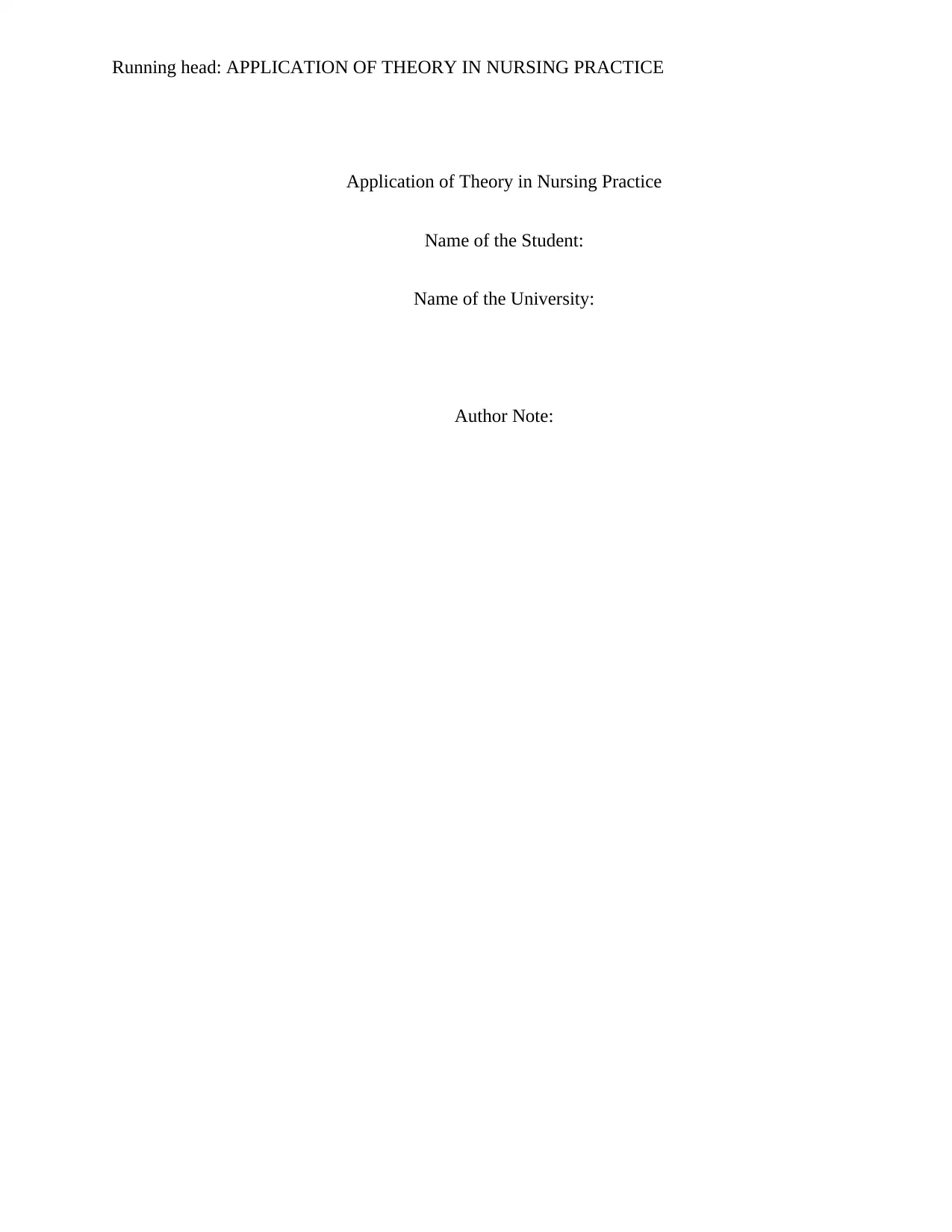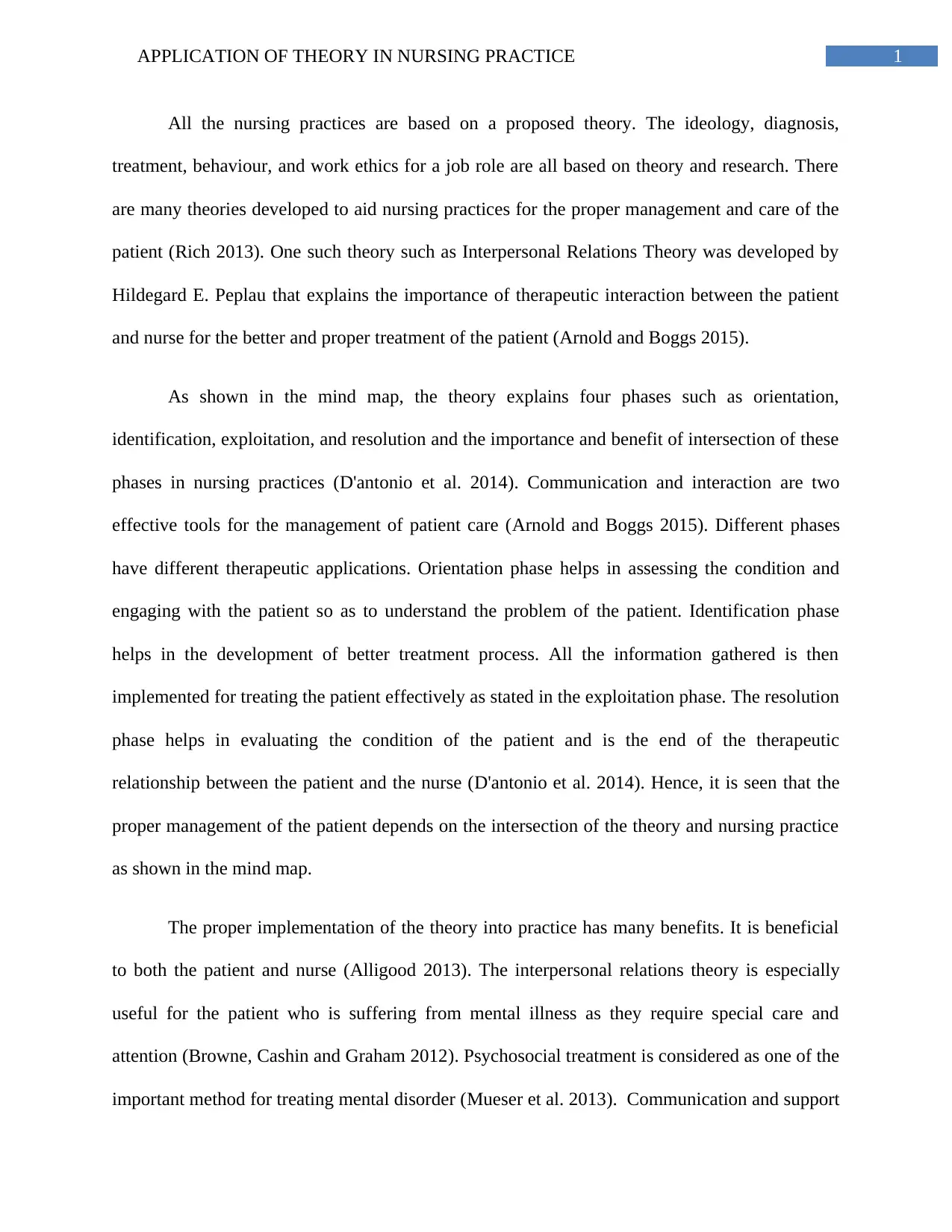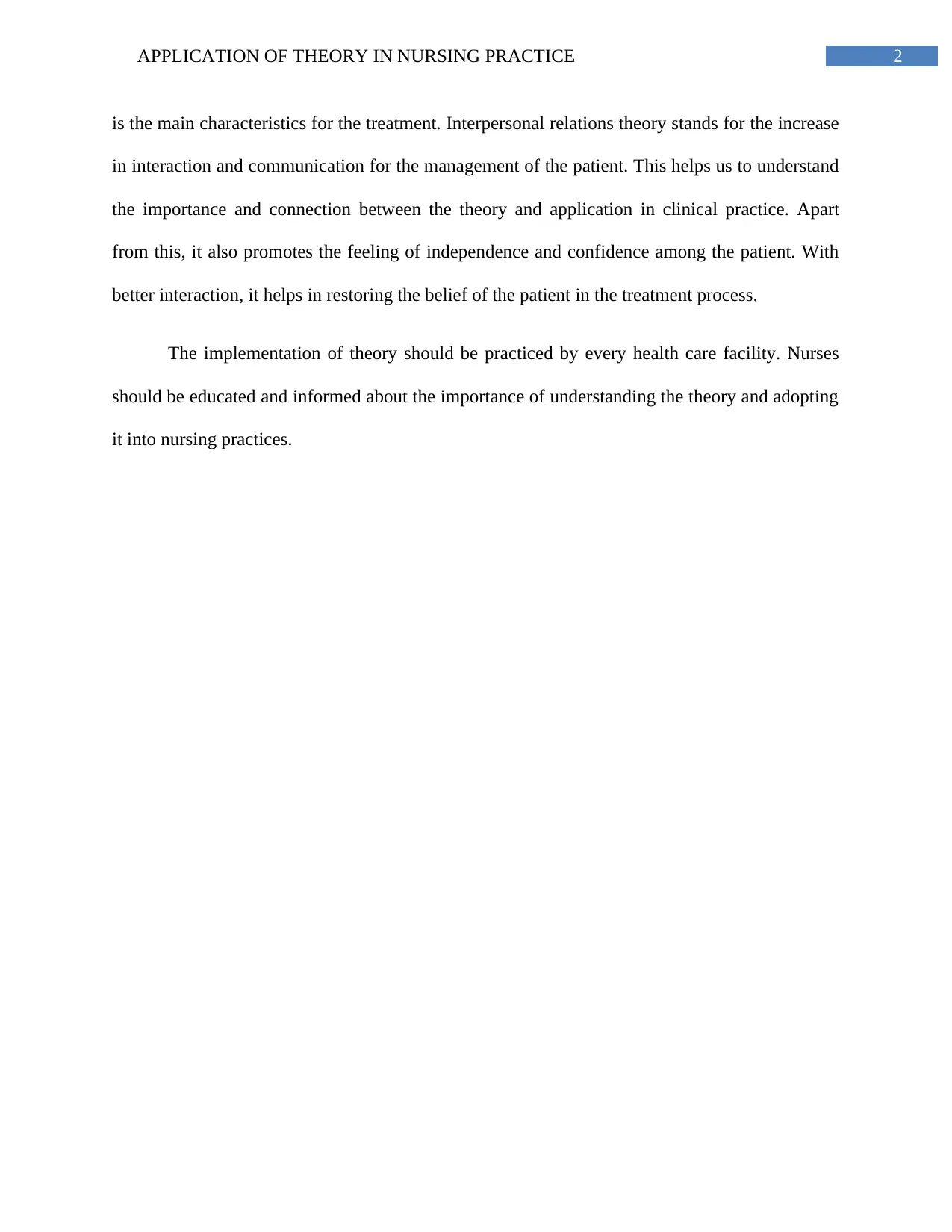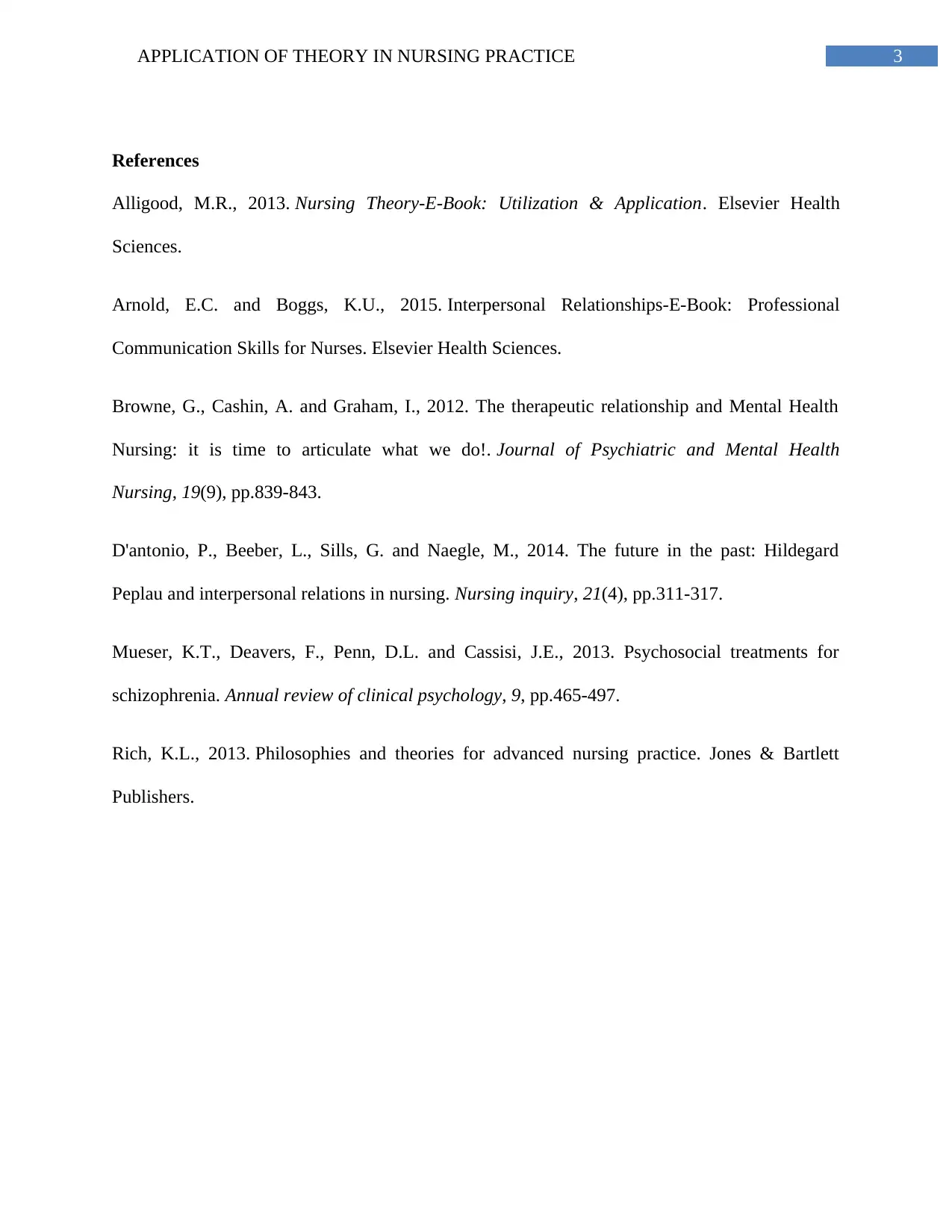Application of Peplau's Theory in Nursing
VerifiedAdded on 2020/04/01
|4
|698
|75
AI Summary
This assignment examines the significance of Hildegard E. Peplau's Interpersonal Relations Theory in nursing practice. It delves into the four phases of the theory – orientation, identification, exploitation, and resolution – highlighting their therapeutic applications in patient care. The assignment emphasizes the importance of communication and interaction between nurses and patients, particularly for those with mental illness, showcasing how this theory promotes patient independence, confidence, and belief in the treatment process. It concludes by advocating for the integration of theory into nursing practices across all healthcare facilities.
Contribute Materials
Your contribution can guide someone’s learning journey. Share your
documents today.
1 out of 4










![[object Object]](/_next/static/media/star-bottom.7253800d.svg)